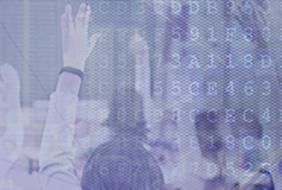
To achieve global sustainable development and intercultural dialogue it is essential to ensure universal access to quality education, according to the United Nations Organization for Education, Science and Culture (UNESCO). To this end, open educational resources (OER) are an opportunity to:
- Maximise the possibilities of the digital technologies to address common educational challenges.
- Turn into a catalyst for social innovation, which can facilitate changed forms of interaction between teachers, learners and knowledge.
- Improve access to high-quality, context appropriate educational materials for all.
Thus, following the report “Open Educational Resources: A Catalyst for Innovation”, OER are defined as public teaching, training or research materials being released under a license that allows the free re-use, adaptation and distribution of these resources.

The constituent difference between OER and other elements of digital learning is their openness and lack of restrictive copyright which facilitates the reuse and repurposing of the educational resources such as courses, curricula, training modules, student guides, textbooks, research articles or applications, among others.
In this context, in the last years several institutional initiatives have been launched to share information and work together on issues related to the production and use of open educational resources. Opening Up Education is an example of this, an initiative funded by the European Commission, which aims to stimulate different teaching and learning methods through new technologies, digital content and OER.
In Spain, the National Institute of Educational Technologies and Teacher Training (INTEF) created Procomún in 2014, a repository with teaching materials, classified in a standardized way through metadata (LOM-ES), consistent with the curriculum of primary and secondary education. In order to improve the search and link to other educational communities working on the same area -Europeana, DBpedia and Wikipedia, among others- the platform follows semantic web standards to find educational resources restricting the results by different criteria based on their own reasoning. Moreover, the initiative offers to the teaching community a meeting place to share ideas, experiences and knowledge about educational uses which allows to create new resources and materials.
Education is a key factor to economic, social and even environmental progress. For these reasons, governments around the world are looking for effective ways to improve national education systems. Thus, the future of education is not only limited to increase its scope and reach more citizens, thequality and diversity of educational opportunities have to be optimized as well. Challenges can be addressed through educational resources freely available which also can be an opportunity to eliminate existing educational barriers, promote professional development of teachers and encourage new forms of learning in 21st century.